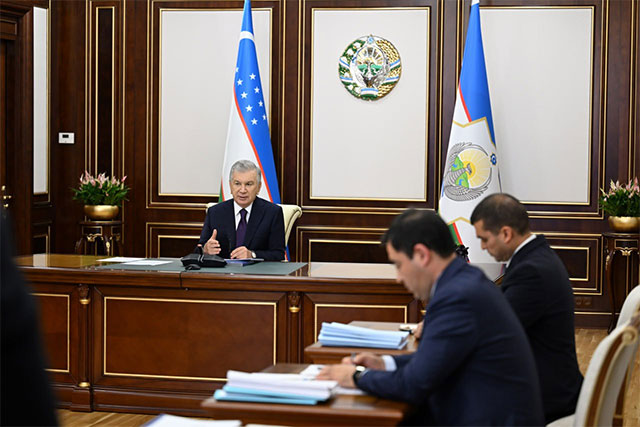
Uzbekistan to Increase Funding for Treatment of Rare Diseases from 2026
Uzbekistan to Increase Funding for Treatment of Rare Diseases from 2026
Tashkent, Uzbekistan (UzDaily.com) — On 3 November 2025, President Shavkat Mirziyoyev reviewed a presentation on improving medical care for children with rare (orphan) diseases, the current status of healthcare reforms, and the implementation of new projects in the pharmaceutical sector.
The country has been taking consistent measures to prevent hereditary and congenital diseases, ensure timely diagnosis, and provide treatment for children with rare conditions. Currently, 2,174 children with five types of orphan and hereditary genetic diseases receive free diagnostic services, medications, and specialized therapeutic nutrition funded by the state. Enhanced diagnostic capabilities are helping identify new diseases, increasing the number of children in need of support and treatment.
The President was presented with a program for 2026–2030 aimed at organizing medical and social support for children with rare and hereditary genetic diseases. The program foresees expanding the list of state-funded diseases from five to ten and raising the age limit for receiving assistance from 18 to 21 years. The total program funding will amount to 961 billion soums. The head of state signed the corresponding decree and approved the program.
The presentation also highlighted developments in the pharmaceutical sector. In recent years, enterprises produced goods worth 5 trillion soums and exported products totaling US$172 million. Investment attracted reached US$286 million, of which US$257 million came from foreign sources.
Currently, 35 companies produce 205 types of medicines, with exports reaching 55 countries. In 2025, 16 projects worth US$29 million were commissioned, creating 830 new jobs. To ensure quality and safety, 61 enterprises have implemented GMP standards, 486 distribution warehouses adhere to GDP standards, and 9,450 pharmacies comply with GPP standards.
Authorities also addressed measures to prevent price manipulations for imported medicines. Of 7,600 imported drug types, 4,900 are not included in reference country price registries. From 1 January 2026, the average prices of 2,600 prescription drugs are expected to decrease by 40–50 percent.
The program includes mechanisms for state procurement of pharmaceuticals through the electronic platform farma.xarid.uz, accessible only to certified manufacturers, distributors, and suppliers meeting GMP, ISO:13485, and GDP standards.
The platform will automate compliance checks against reference price levels, and procurement volumes and certified participant registries will be publicly available. President Mirziyoyev ordered the creation of a system by January 1, 2026, to manage the needs of state medical institutions and track inventories of medicines and equipment.
A new procedure for state registration of medicines and medical devices was also presented, allowing production via technology transfer. This enables foreign companies to manufacture products at local facilities with expedited registration.
New types of biotechnological and cell-based treatments are being introduced for tissue repair, organ development, and functional restoration. Generic drugs will undergo clinical trials according to international standards with reduced registration times, and first-class medical devices (except sterile, measuring, and invasive devices) will be exempt from laboratory and clinical trials.
Following the presentation, the President approved the proposed measures and instructed that, by the end of 2025, 32 investment projects totaling US$166 million be fully implemented, 1,500 new jobs created, production and export volumes of pharmaceuticals increased, and prescription drug prices reduced.
#Shavkat Mirziyoyev